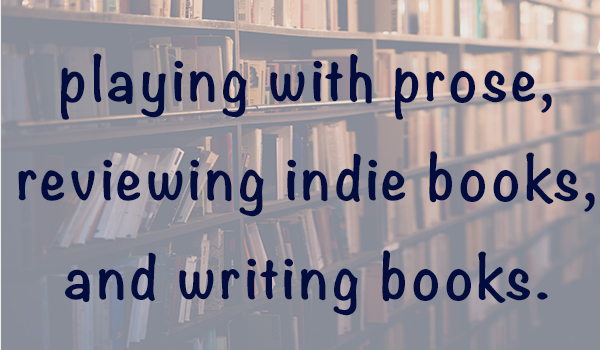
Blog 68: A Petulant Life
Blog 68
Hello everybody, today we have a piece titled A Petulant Life by Chasing Grace on Writing.com.
Paragraph 1
The room poorly lit, the air stale and at moments, stifling. A woman of advanced years reclines on the bed, laying beneath a heavy comforter. Despite the warmth of the room her small frame quivers, and her skin felt cool to the touch.
A decent opening paragraph, it provides us with an immediate narrative and some atmosphere with solid descriptions. The first sentence is incomplete as it lacks a verb and the tense vacillates here and there. I have very few changes to make so we’ll do them together.
This is a present tense narrative so we’ll add an ‘is’ to the first sentence to supply the missing verb. While ‘is’ is passive, this first sentence isn’t built around an action and so we would have to shoehorn in a more active verb while ‘is’ fits in quite nicely, makes little fuss and maintains the pacing/tone of the first sentence. The ‘at moments’ is a bit clunky (I think because it’s two words and both have the hard ‘T’ sound.) and might read better as a single word like ‘sometimes.’ That aside the comma after ‘moments’ needs to change somewhat. It needs to either be deleted or have another comma added before the ‘at’. Currently the only correctly-punctuated way for that comma for be read is to be part of a pair with the comma after ‘lit’ which makes the phrase ‘the air stale and at moments’ an adjective phrase. (I’m not entirely sure that’s the proper name for it, but by ‘adjective phrase’ I mean a descriptive phrase that is unnecessary to the sentence.) The issue with this is that ‘the air stale and at moments’ cannot be removed from the sentence. Ergo, the second comma has to go or another one be added before ‘at’ so that ‘at moments’ because the adjective phrase. I think adding the comma is the best option because I think that’s how the author wanted the sentence read.
For the second sentence I have only that ‘reclines’ and ‘laying’ are repetitive. They convey the same action so one is unnecessary. I would probably delete ‘laying’ because deleting it (and the comma) requires no other changes to be made.
For the third sentence I have a more significant suggestion. I think the paragraph would flow slightly better if we rearranged it to lead with ‘her small frame’ instead of ‘despite the warmth.’ The reason I think it reads/flows better is because it has a smoother progression of thoughts. In the original structure we mention the woman then we introduce a different topic that loops around back to the woman. Despite being rather small, that ‘despite’ is a topic jump, and it compels the sentence/reader to reorient. Leading with the ‘her’ reads like a continuation of the second sentence; we introduce the woman and continue with the woman. All the same information is conveyed, the pacing remains the same, but there’s no topic jump, meaning the readers can just follow along. The final change to this sentence is that ‘felt’ is past tense while this is a present tense narrative so far.
— The room is poorly lit, the air stale and, sometimes, stifling. A woman of advanced years reclines on the bed beneath a heavy comforter. Her small frame quivers despite the warmth of the room, and her skin feels cool to the touch. —
Reading all this together again, I think there might be one more rhythm change that could be made to the paragraph. This isn’t a delete change though, only an addition, and it’s entirely rhythm and phonetics based. The ending of the second sentence (‘beneath a heavy comforter’) reads just a little short or stiff. I can’t quite put my finger on it but I want it to read just a little bit slower so it doesn’t feel so perfunctory. With that in mind I might try something like “beneath the folds of a heavy comforter”. This elongates/slows it down just that little bit so it matches the pacing/tone of the first and third sentences a bit more. (an additional, though ultimately unnecessary, benefit, is that ‘folds’ complements ‘heavy’ by adding a feel of volume to it. By giving the comforter just a little bit of shape, it embraces and enfolds the character more so that the comforter’s weight feels more applied to the entire body.
A good thing to note is the phrase ‘small frame’, which is a subtle bit of narrative/emotional manipulation. ‘Small’ paints this woman into a delicate, defenseless light, which both complements her sickness but also teases the readers to feel protective of her/want her to be safe in the same way of puppies and other cute infant animals. This is one of the ways you increase reader investment, and how you get them to perceive the story that way you do. Remember! Readers are just your helpless puppets; it is your job to (surreptitiously) tell them how to feel and react. (for further examples see the exclamation point after ‘remember’ and the ‘helpless’ before ‘puppets’, which paints my previous comment into a more comedic light and directs you all away from the festering reality of my psychopathy.)
Paragraph 2
She heard them speaking… Those who stood or sat about her, but she couldn’t make out their words. Curt in her ways at times, she wanted to demand that they speak up, but the words would not form on her lips.
Again, very little to say about this paragraph. I’m not entirely sure the ellipses after ‘speaking’ are correct. Ellipses usually indicate a pause or trail off but neither of those feel appropriate for this situation because this is an external view and the author/narrator shouldn’t need a pause to decide their words. Even if it was a POV narrative, the woman knows there’s people around her so she wouldn’t pause there either, maybe if she was trying to express specifics. Other than that, I would consider changing ‘make out’ to ‘discern’ since ‘discern’ is a specific word for what ‘make out’ is saying and because it would typically read smoother as a single word rather than two.
After that, I would remove the ‘that’ from ‘demand that they speak up.’ There are two reasons for this, though they amount to mostly the same thing, the first is rhythm; the ‘that’ is unnecessary for comprehension and because it’s written with two ‘T’s its phonetics are quite hard, so deleting it makes the sentence read better/smoother in my opinion. The second is that deleting it fits the author’s more flowery/romantic style
Paragraph 3
She listened intently to the world around her instead.
There are two things this sentence/paragraph I would like to discuss but they’re not necessarily flaws and they’re less tangible than I would prefer, more on the meta side of things. The first one deals with the tone of the narrative; in the first two paragraphs the story employs a gentle, patient, ‘hands-off’ tone. Then it changes for this sentence; ‘intently’ (by nature) is a word of hyper focus, and so it takes the slower, sleepier and ‘romanticized’ pacing and concentrates it, sharpening it. This is a jarring change and that may not be what the author wants. It’s not just the ‘intently’ though, the brevity of the sentence itself also cultivates a sharper, more ‘physical’ tone. There’s a second element to this as well and that’s how quickly the narrative pivots from her being unable to hear or speak to the people around, and the space around her being vague and distant, to her intently listening to the larger world. There’s no transition or catalyst, she’s doing one thing, then she’s doing another unrelated thing in immediate succession. The author corrects this narrative veer by adding an ‘instead’, but it doesn’t really help the pacing or abruptness of it.
Like I said above, these things aren’t necessarily flaws, and they may be intentional, but I thought they were worthy pointing out regardless.
The second item is more actively a flaw, but again more vague and ambiguous than technical. The phrase ‘to the world around her’ is romantic style (A romantic style, best as I can explain it, is characterized by evocative words full of meaning like ‘world’ and ‘lips’ used in a more whimsical, less strictly correct style—here, for instances, she’s not actually listening to the world, just the space around her house.) but the phrasing itself is vaguely contradictory (in that her relatives are ‘around her’ but she’s not listening to them) and, more importantly, ever so vaguely off. The romanticism for ‘around her’ comes from the intimacy implied by ‘her’ and the closeness of ‘around’, which centers the ‘world’ into the space around her, the space her relatives inhabit, but that’s not what the author meant. The author meant the larger world, specifically the world immediately outside her house (a subsequent paragraph discusses the rain as the main focus of her listening.) Does this feel like a nitpicky edit? It is, but it is also important to find the right word, the word that conveys the feeling you’re trying to impart as much as the technical, especially in a romantic style. For me, this ‘around her’ manifested in a blip of narrative dissonance as I was reading, initially just as a sensation of ‘something’s a bit off’ then as the realization that ‘around her’ technically includes the people she’s now ignoring, and ultimately that it almost focuses the sentence on the space they inhabit, the space immediately around her. How would I fix this? I might try something like “the world outside of her house”, maintaining the intimacy/personalness of ‘her’ while being more specific in what she’s actually listening to (and ‘outside’ is an acceptably romantic word since it has connotations of freedom, which is a very romantic and emotional concept.) ‘House’ is less romantic, but it carries enough emotion/implications (specifically in the way a house can feel like a person who has lived there for years, or can feel safe depending on history and stuff) that it doesn’t subtract too much from the romantic tone. I think this mostly satisfies the author’s intent, but cannot say for sure and the author can probably come up with a better solution of their own.
That’ll will be all today. No final edit because I made barely any changes.
If you like what you’ve read, check out the rest of the story or some of the author’s other works.https://www.writing.com/main/view_item/item_id/2096571-A-Petulant-Life
If you like my work, consider subscribing or, if you’re brave/desperate enough to contact a madman, submitting a piece of your own.

